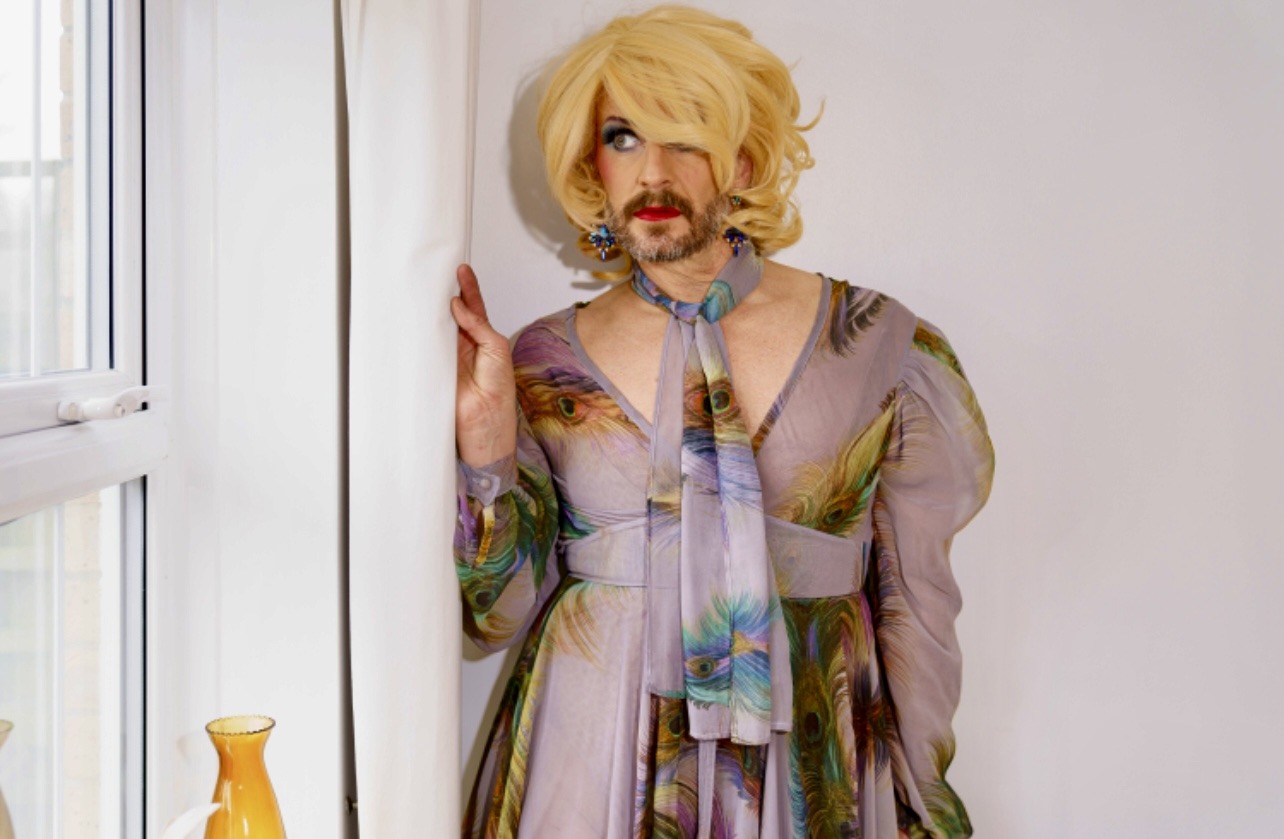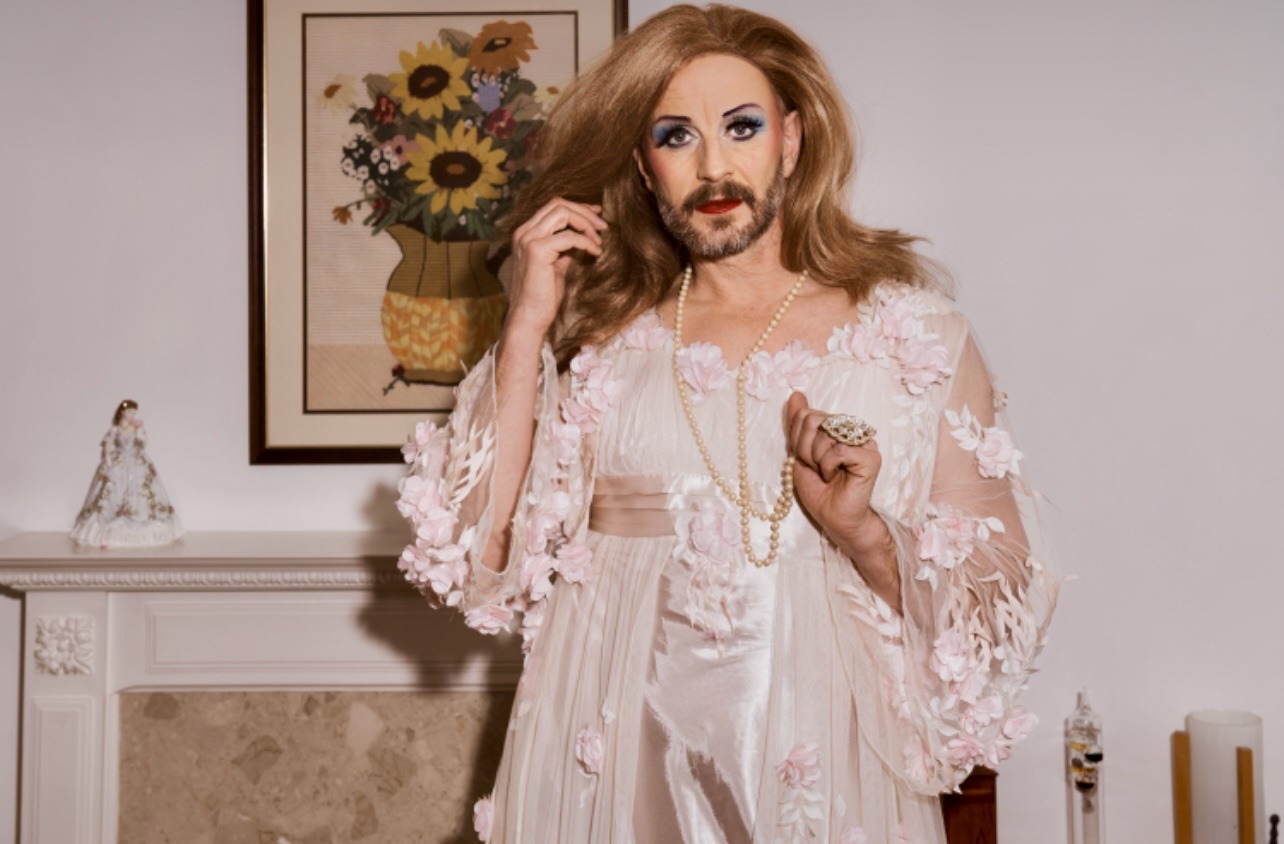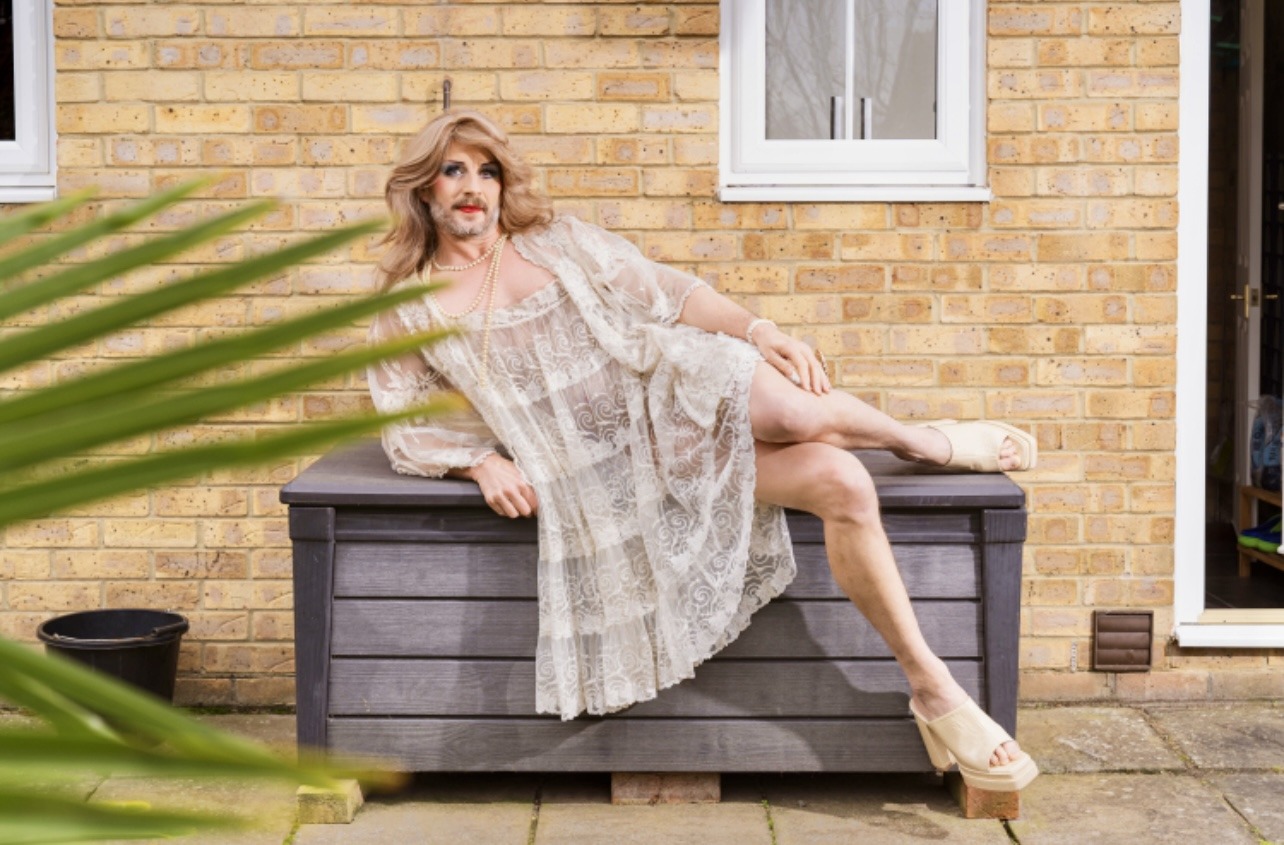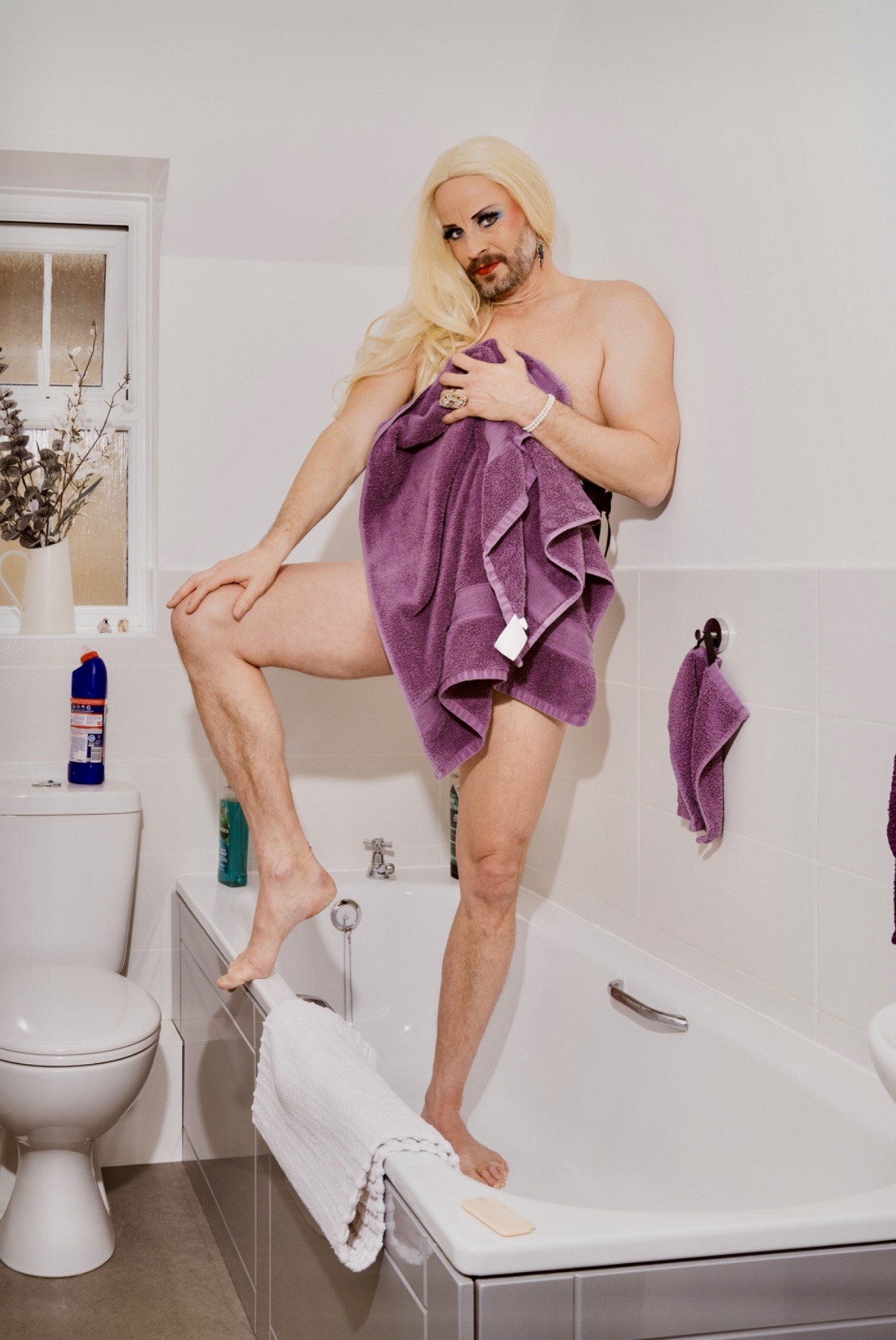
King, or Queen of the London scene, performer and drag icon, Jonny Woo returns to Soho Theatre this coming January with a new personal cabaret Jonny Woo: Suburbia. Paying homage to his influential upbringing in the suburbs before his life in the big city lights and on stage, this theatre piece presents a poetic memoir charting his journey from a childhood in Medway, to the night clubs and sex dens of New York, to a queer community in London which he helped shape himself. Featuring his signature ‘alt-drag’ and cabaret, spoken word, and storytelling, Jonny Woo: Suburbia presents Woo’s most honest piece to date, sharing the formative moments which influenced his career and life now.
Suburbia explores how the chance encounters from a childhood lived at home have significant echoes in later life. Its these moments which offer catalysts for who you become. Paving a way in the LGBTQ+ scene not only for himself, but for new platforms and spaces for queer representation, Woo looks back on the moments which started it all.
Preparing to reveal all, from the lessons learned and the secrets harbored, Jonny Woo will share his life experience through burlesque, musical covers and original poetry, prose, and spoken word written as part of an ongoing memoir. A far from suburban show, Suburbia features Woo’s sharp wit and wow-factor to journey through his formative years.
 |
 |
I caught up with Jonny during rehearsals to find out more.
QG: You’ve been one of the most prolific performers on the scene for around two decades now. Where do you get your continued drive and inspiration from?
JW:I’ve come to a point where if I’m not performing and making shows then I’m really not happy. It’s a compulsion as much as it is a joy to create. I really couldn’t do anything else. When I was in my early twenties I worked in retail and I reached a point where I thought if I don’t give performing (then dance) a shot, I’d regret it for the rest of my life and that was it. I largely employ myself, in that if I have gaps in my diary then I think, I need to fill that with a show and so I’ll either make one myself or collaborate. I also have creative ‘manic’ episodes if you like when the genesis of ideas will explode, and I’ll make a call or sow the seed of an idea and in that starts the process to realisation and my inspirations come from different angles. Lou Reed’s death inspired my show Transformer (The Wild Side), the Brexit musical was a chance conversation with my then PR Jack and composer Richard Thomas, the recent production of Antony and Cleopatra at The Divine was again a chance remark with director Robert Chevara. I love making art / performance. It’s how I thrive. It’s how I socialise and like all cabaret artists it’s how the bills get paid.
QG Your new show is so personal. We all love to learn about the people we see on stage. Are there any areas of your personal life that are going to be off-limits?
JW I touch on personal stuff in everything I do really. Improvising in cabaret comes from personal experience and you can learn a lot about me from streams of consciousness in stand-up moments. My solo shows, many of which went to Soho Theatre were inspired by life experience. I have one life, so the shows often have cross over points of reference. Being now in my early fifties I’m realising that moments from childhood or adolescence can trigger patterns of behaviour that affected me in later life, for better or worse, or just for what it is. I explore that more here. From the Medway towns to ‘sex, drugs and drag’ where did that come from? Just a hedonistic pursuit or developed behaviour patterns from early lessons in life? As cabaret artists we are often our own research material. Is anything off-limits, not really, I guess. I’m pretty much an open book on stage – in life I can be more guarded.
QG What life advice would you give to your eighteen-year-old self?
JW That’s so tricky as often I feel like that 18-year-old and I still haven’t learnt those lessons. Ask for help – a lot of advice is freely available – you don’t have to make those big life decisions on your own. How do I give my younger self tips on dating when I get so nervous at the thought of going on dates as an adult? Don’t drink or take drugs? But then I had so many amazing years and met so many amazing people in pubs and clubs. If you take drugs or drink – just don’t get addicted? It doesn’t work like that. If a younger gay on the scene for example asks me for advice it’s usually work hard, show up and be nice and don’t be afraid to take risks. When it comes to personal stuff it’s usually the kids who can advise me.
QG How has the queer performance scene changed over the past twenty years?
JW It ebbs and flows, I guess. I was part of and helped nurture a small scene in Hackney around a few venues, Bistrotheque being a key venue, where I still make work. There are moments when it feels like nothing, or little is going on and then times when social media is flooded with queer artists making work. I’ve always said queer artists are resilient, progressive and determined and if space is not there, they’ll make space. I’m like that. People might not see me now as being a progressive queer artist, I feel a bit old guard, but when we started The Glory it was a group of friends who thought something was missing, a lack of a performance space, and so we created The Glory (also for fun and as a business). I see queer work being created across London or hear about venues and I think, I didn’t know that was going on and I like to know about pockets of art bubbling up, much of which moves to what I see as London’s leading (queer) performance space, Soho Theatre. Also, major institutions, The Globe, The National Theatre, The Barbican, The Southbank Centre all have queer programming or are inspired by our scene – you see it on stage either a mirror or grass roots artists – The Royal Court a case in point. Queer creativity is always there.
QG It’s financially much harder for young kids to leave home and move to big cities these days. What advice would you give to a budding queer performer living at home in the suburbs now?
JW Just make it happen. Opportunity, creativity and community exists in the cities. It’s not easy and you will have two jobs, and you will work for rubbish money and you will house share and you will find your people and you will make an amazing life and you have the drive and ambition and you can make it happen. There’s no magic formula – this is the world we live in. Just go for it.
QG What can we expect from Jonny Woo: Suburbia?
JW Well, some good classic ‘Woo’ style cabaret. If you come to my shows regularly there will be some classic moments you might recognise re-contextualised. If you are totally new to my work, I like to thrill, shock and entertain – but then I like to bring it in – be intimate and personal. I’ve been writing a memoir so there is a lot of writing based on this which make up the narrative – the story. I like to switch gear throughout so just when you got comfortable in one style, I’ll give you something else. I’ll touch on many of my favourite subjects – the 90’s, drugs, dance music, sex clubs and of course Eurovision and the show is almost entirely costumed with dresses from a very special donor. Come and find out who that is. It’s a cabaret theatre piece. It’s funny, personal, thrilling. Well, I hope it is – make up your mind.
QG Thanks Jonny! Sounds great. Can’t wait for this!
|
Jonny Woo: Suburbia is on in London at the Soho Theatre, 21 Dean Street, London W1D 3NE. Tuesday 14th – Saturday 25th January 2025 (not Sunday 19th) |


